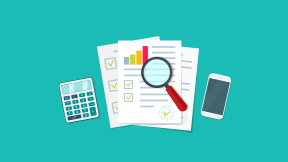Budgeting basics

Make a plan for your income to help achieve your financial goals
It's finally payday and you can pay your bills and buy some things for yourself. All of a sudden, a forgotten expense pops up, and you have to pull from your savings to pay it. It's a scenario many of us have experienced.
That's why budgeting can be a useful tool to help you manage expenses. A budget can help you figure out how much money to set aside for rent, bills, groceries, and entertainment to make sure you're always covered.
Keeping track of your spending can help you maintain good credit health and reach your financial goals. Let's explore how a budget can benefit you and how to build one.
Budgeting for your credit and goals
There are many benefits to maintaining a budget. Knowing where your money goes and keeping your spending under control may help you:
- Get out of debt
- Avoid overspending
- Pay your bills on time
- Avoid having high credit card balances
A budget also lets you work toward your financial goals. When you know how much money you have left over after paying your bills, you can choose a goal and plan how much to put toward it each month.
Building a budget
Creating a budget requires a few steps:
- Calculate your take-home pay
- Gather your credit card and bank statements or receipts for the past few months
- Organize your expenses into categories, such as rent, groceries, and entertainment, and determine how much you spend in each category per month
- Set spending limits for each expense category
Some of your expenses are fixed, such as your rent payments. However, you have more flexibility with other expenses like groceries, entertainment, and savings. You can adjust these when you need to help reduce your spending.
Here are a few ideas to help you build your budget:
- 50/20/30 rule: Set aside 50% of your income for things you need, 20% for your financial goals, and 30% for things you want.
- Zero rule: Make sure each dollar of your take-home pay is accounted for by assigning it to a specific spending or goal category.
- Pay-yourself-first rule: Contribute toward your goals at the beginning of the month before you pay your bills, and then you can spend the rest of that month's paycheck as you wish.
Remember to always keep your spending limits reasonable.
Tools for budgeting
Budgeting doesn't have to be complicated. Here are a few tools that may help.
Paper and pen
Write down your income and spending categories; subtract from the spending limits you've set for each category as you spend throughout the month
Excel spreadsheet
Enter your income and expenses and use formulas to track your spending
Software or budgeting apps
Link your bank and credit card accounts to track your spending automatically.
Envelope method
Label an envelope with a spending category and fill it with the amount of cash you've budgeted for; only use that money during the month.
Choose a tool that makes you feel most comfortable and works best for you.
Tips for successful budgeting
Here are a few tips that can help you create a budget that works for you:
- Set reasonable spending limits.
- Track your spending throughout the month so you know when you're getting close to the spending limits.
- Plan for a few indulgences so that your budget doesn't feel too restrictive.
- Make sure every expense is linked to the right category.
- Update your budget when your income or goals change.
Adjusting to a budget can take time. You might learn after a month or two that some of your spending limits are too low, while others are higher than they need to be. Review your budget against your expenses over the past month or two and rethink how you've set it up. Your budget can only be effective if you keep working at it.
Key takeaways
- Having a budget is a great way to improve or maintain your credit and work toward your financial goals.
- Building a budget starts with looking at your income and deciding how much money to set aside to different expense categories each month.
- You can create a budget with a pen and paper or use apps and software. Use whatever tools work best for you.
- Learning to live within a budget requires time and patience. Remember to check your budget periodically to make sure that it's working for you.



